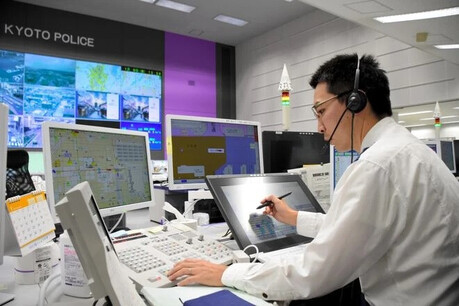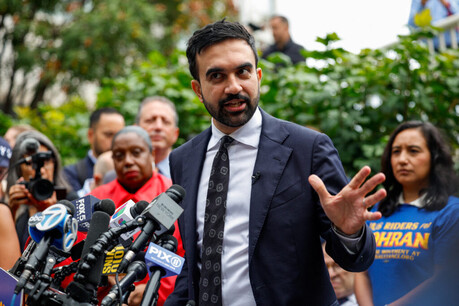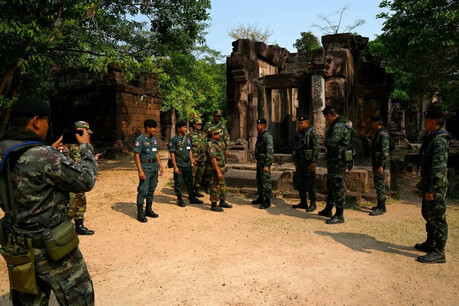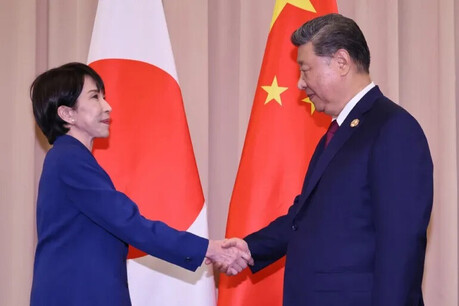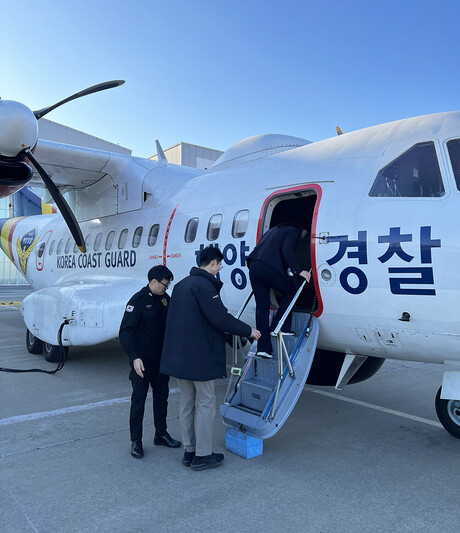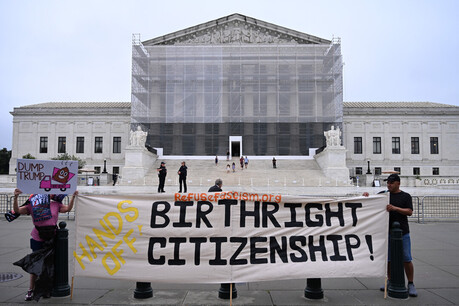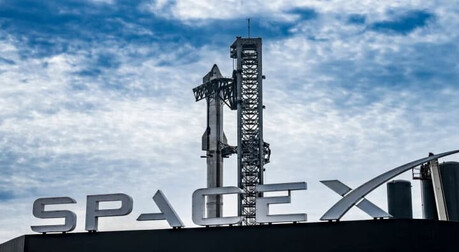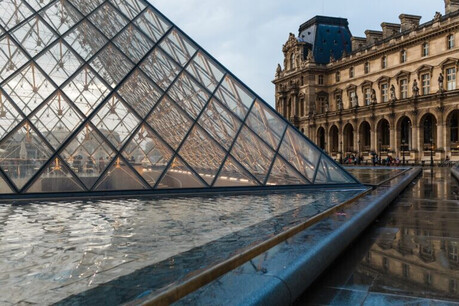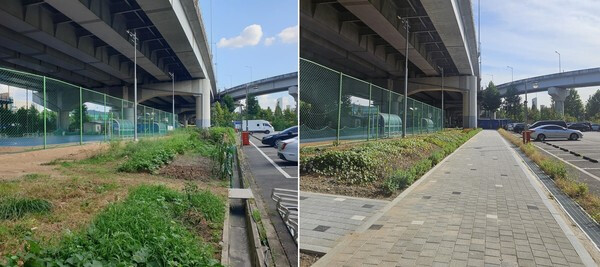
Bucheon, South Korea – Bucheon City announced today that it has successfully completed the expansion and renovation of pedestrian walkways located beneath the First Circular Highway, addressing long-standing concerns about pedestrian safety and accessibility.
The area under the First Circular Highway has been developed into a public space for citizens, featuring green spaces, cultural facilities, sports facilities, and public parking lots through a partnership with the Korea Expressway Corporation. However, the area had faced several challenges, including geographical isolation, narrow sidewalks, overlapping pedestrian and bicycle paths, and unsightly fences that separated the road from the underpass. These issues, coupled with insufficient sidewalk space for pedestrians, cyclists, and strollers, had led to safety concerns and inconvenience for residents.
To address these problems, the city implemented safety measures, such as widening sidewalks and removing fences. Over the past two years, Bucheon City has focused on improving the accessibility of various sections, including the paths leading to Sangdong Lake Park and Woongjin Play City (Geonhang intersection), Sangil Middle and High Schools (Heungcheon intersection, Haeneul Botanical Garden), Sangmi Elementary School and Beotkkot Village (Jangmal intersection), and Sangdong High School and Sangdong Library (Circular intersection). These improvements involved expanding sidewalks and removing obstacles to facilitate two-way pedestrian traffic.
Additionally, in December of last year, the city renovated the area under Songnae IC, including the public parking lot, to create a more pedestrian-friendly environment that connects Songnae Station to Sangdong Library and Woncheon Park.
Bucheon City is committed to prioritizing pedestrian safety and has established the "Bucheon City Permit Processing Guidelines for Vehicle Entry and Exit on Crosswalks." This guideline ensures that pedestrian walkways are given top priority during construction projects.
Mayor Jo Yong-ik emphasized the importance of urban space improvement for the well-being of citizens, stating, "Improving urban spaces is directly linked to the welfare of our citizens. We will continue to enhance our urban spaces to improve the quality of life for all residents."
[Copyright (c) Global Economic Times. All Rights Reserved.]
















